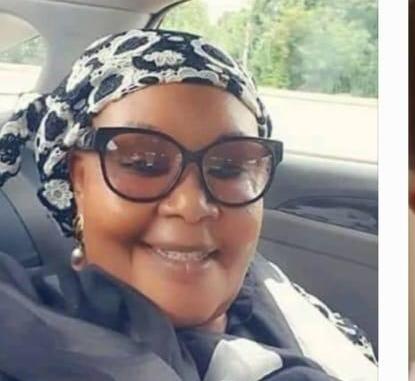
Nigeria is in an electoral season and the atmosphere is charged. I got back to my base in UK after the party primaries and discovered that as is usual my compatriots here in UK are also as intrigued as those at home about the political development in Nigeria. It is an established fact that no nation exists in autarky.
There are always reasons for migratory movements both for official and personal reasons. Research has shown that increased migration is inevitable in an integrating world economy such as we have today. Nigeria is one of the developing countries with a high migrant or Diaspora population. Nigeria is one of the developing countries with the highest migrant population in the world.
The Nigerian Federal Ministry of External Affairs estimates that there are 20 million Nigerian living in Diaspora with the USA having the largest Nigerian community estimated to be 3.4 million in 2020. They live abroad for many reasons. Some migrate for further studies, some to seek economic fortunes and others for sundry reasons. Those who sojourned abroad are not disconnected from their families back home. They maintain the usual filial contacts and visit home at regular intervals especially during festive periods to reunite with their families. Many participate actively in supporting and seeing to the economic wellbeing of their families by making regular financial remittances home. It is estimated that in 2020, Diaspora remittances to Nigeria was $17.21bn. Remittance inflow made up four per cent of Nigeria’s Gross Domestic Product in 2020.
As I sit in my study writing this, I am ruefully calculating how I will also make a return journey home in February to vote for the candidates of my choice in the 2023 general elections because our home government has not made provision for Diaspora voting. As I am worried and so are many of our people resident abroad who have been disenfranchised because of the absence of mechanism to exercise voting rights. Imagine the impact the 20 million Diaspora Nigerians will have on the politics of Nigeria. That citizens of a country reside outside their home countries does not strip them the rights and privileges accruable to the resident citizens.
And these rights include the right to vote and be voted for. It is observed that this right is inalienable and that is why most countries allow their citizens abroad to vote from their country of resident. Most countries in Europe and Asia create platforms that enable their overseas resident citizens to vote in their national elections. As recorded in a respected online encyclopedia, Wikipedia, “according to an extensive and thorough research published in 2007, out of researched 214 countries and territories, 115 had provisions for external voting.” It is also reported that about 21 African countries have facilities for Diaspora voting.
From the foregoing, it is clear Diaspora voting is a recognised global practice that Nigeria is yet to imbibe. Thus, there is urgent need for us to adopt it in order to internalise the benefits that will arise there from. Clearly, the benefits of allowing Nigerians abroad to participate in voting cannot be over-emphasised. Among other things, it will give our people outside the country a sense of belonging and stimulate their think-home attitude necessary to make them invest at home.
Courting the attention of Nigerians in Diaspora will put our electoral campaigns on the global stage and make our campaigns more issue-based. Talking to an enlightened global audience will make our politicians more responsible and sensitive in their conduct. In the long run, it will help deepen our democratic culture and practice. The vote of the over 20 million Nigerians resident abroad will always be the decider in every election, if properly harnessed.
So, as the campaign for the 2023 general elections continues, I enjoin the National Assembly, the Nigeria Diaspora Commission as well as the Federal Ministry of Foreign Affairs to put the structure in place to enable the Nigerians resident abroad to participate in the voting exercise. As a bona fide Nigerian living outside the country, I feel it is a duty and a right to do my civic duty at home and so do my compatriots here. There are many Nigerians outside the country both on temporary and permanent residency and there are many on official and personal visit abroad. It may not be possible for these Nigerians on account of distance, cost, engagements and other constraints to visit home during election just to vote.
These groups of potential and eligible voters cannot be disenfranchised on account of this. Therefore, there is the need for our government to put the structure in place as it is the practice globally to enable Nigerians resident outside the country to vote, accordingly. The registration exercise and accreditation can be easily done in our various embassies and consulates abroad and in this age of global interconnectivity, online registration and electronic voting can be employed to make the process easier.
Without doubt, I must state that Nigeria is over ripe for Diaspora voting because of the benefit accruable from the exercise. Our democracy is still at infancy. We need mass participation to enable it grow. We need the experience from other climes to enrich the democratic process. We need to attract and encourage our sons and daughters abroad to come home with their wealth, skills, resources and experience to strengthen our democratic culture. One way to encourage this is by allowing them make their input in the democratic process through voting.
Hajia Mohammed, an actress, social activist, politician, writes from London, UK via hajiahadizamohammed@gmail.com
